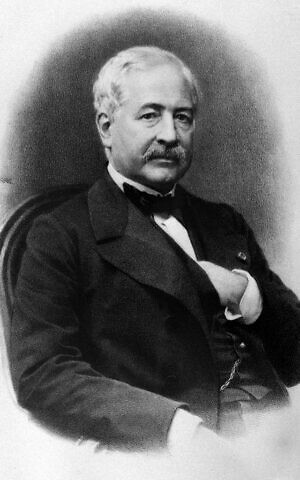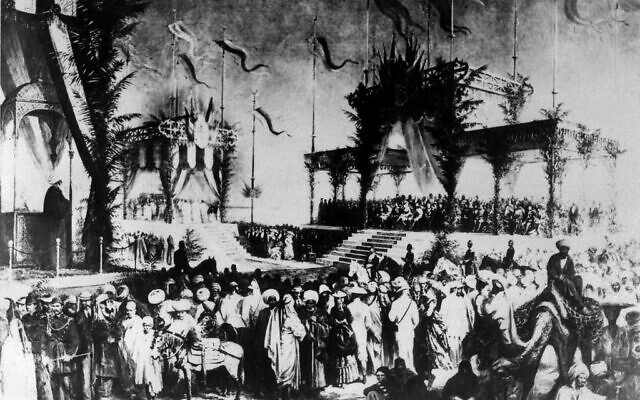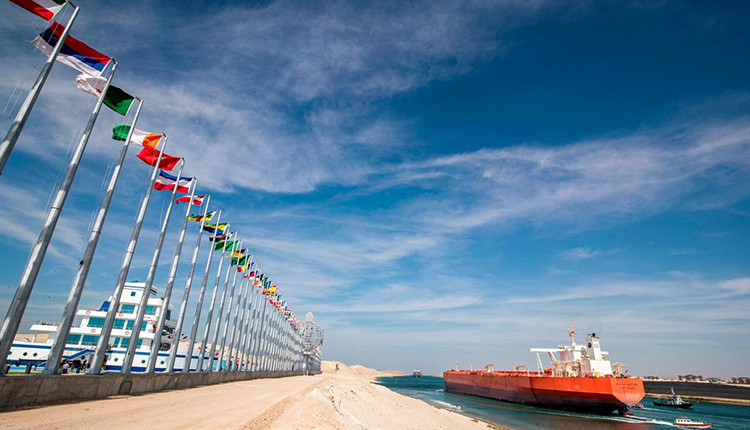Suez Canal marks 150th anniversary
Egypt marked 150 years since the opening of the Suez Canal, hailed as a key waterway to cut shipping times for growing international trade from Europe to Asia, on Sunday.
The iconic artificial sea-level waterway was excavated between 1859 and 1869, in an ambitious project to cut shipping times for growing international trade from Europe to Asia. It was opened for international navigation in November 1869 after 10 years of construction.
“It (the Suez Canal) owes its birth to, and belongs to, the aspirations of humanity,” Ferdinand de Lesseps in an 1864 speech
The Suez Canal is “not a prerogative of one nation,” declared Ferdinand de Lesseps, the French diplomat known for masterminding the project, drawing from the dreams of the pharaohs who dredged a similar channel 4,000 years earlier.
“It owes its birth to, and belongs to, the aspirations of humanity,” de Lesseps said in an 1864 speech.

The Suez Canal is one of the most important waterways in the world. It permits a faster route to and from Asia, avoiding a lengthy and perilous circumvention via the tip of southern Africa, thereby reducing the sea voyage distance between Europe and India by around 7,000 km (4349.6 miles). It is one of the world’s most heavily used shipping lanes.

However, the waterway’s history has followed the turbulent ebbs and flows of the volatile Middle East region.
In July 1956, Egypt’s late president Gamal Abdel Nasser, a staunch defender of Arab unity, defied British and French interests and nationalised the Suez Canal Company which ran the waterway.
The decision, which increased Nasser’s popularity at home, triggered an international anger. France and Britain — countries which both controlled the company at that point — as well as Israel attacked Egypt around three months later.
The canal also served as a frontline during Arab-Israel wars in 1967 and 1973. The canal was closed five times; the last time was the most serious one since it lasted for 8 years. It was then reopened for navigation on June 5th, 1975.
In modern days, the vital sea route is managed by the Suez Canal Authority and was expanded in 2015 to accommodate modern, larger vessels. It has grown into a major economic asset, providing passage for 10 percent of all international maritime trade.
Egypt open in August 2015 a new 35-km waterway alongside the original 190 km Suez Canal, plus a 37-km expansion and deepening of some parts of the existing one.
Known as New Suez Canal, the new artificial waterway is part of a larger project to expand Suez port and shipping facilities and build large industrial zones, is designed to raise Egypt’s international profile, and build the nation as a major trade hub.


